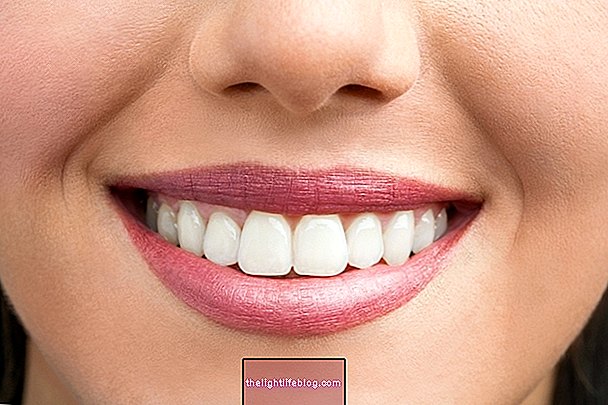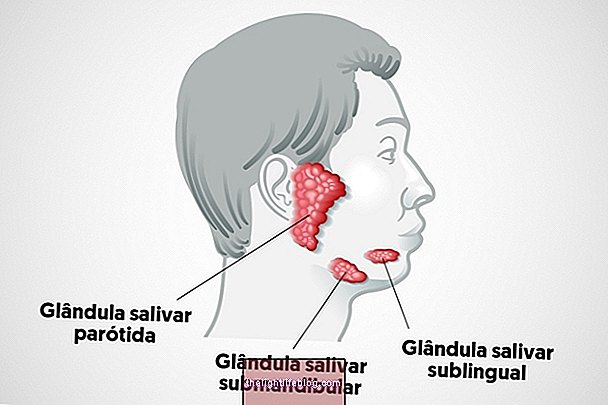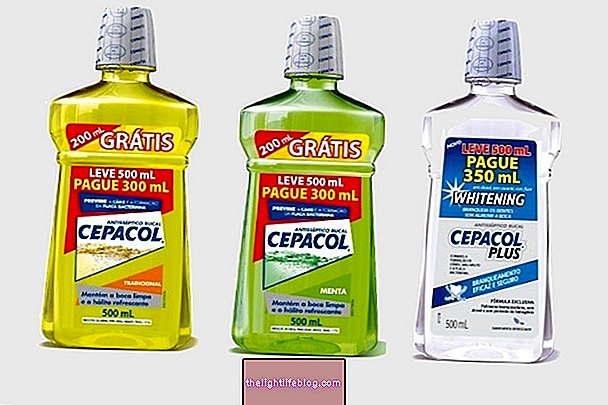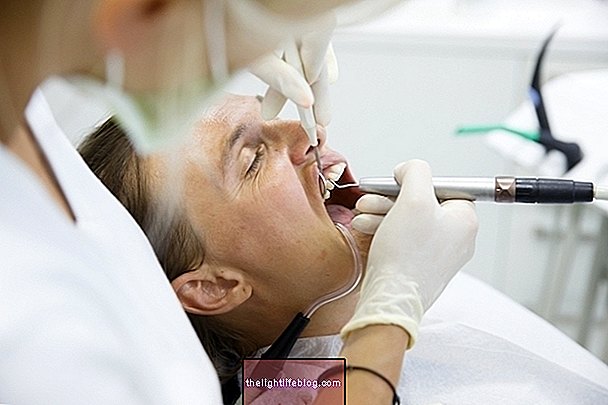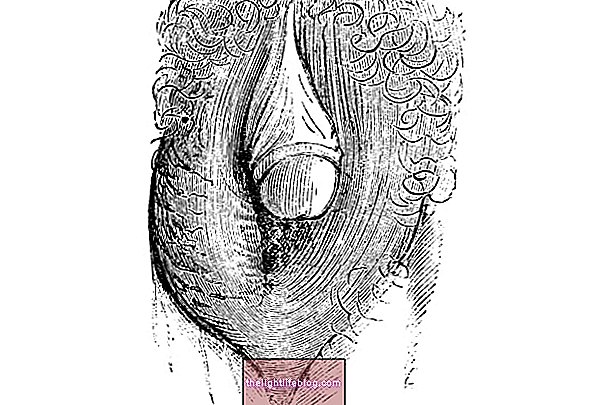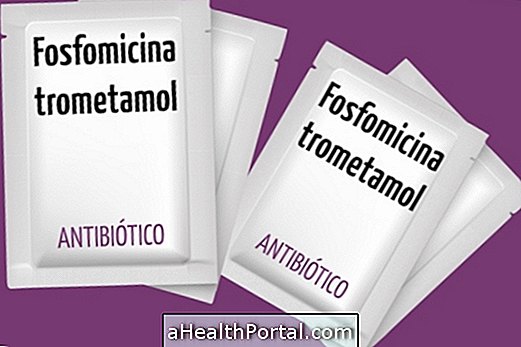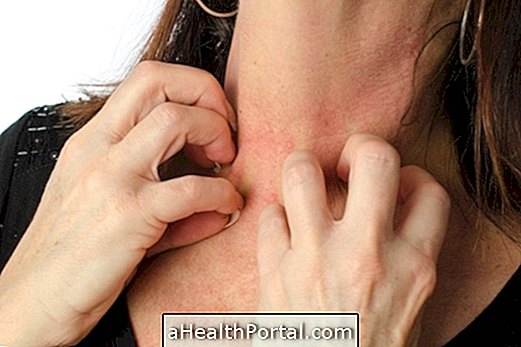A good home treatment for bad breath consists of properly cleaning the tongue and the inside of the cheeks whenever you brush your teeth, because these places accumulate bacteria that cause halitosis, other ways include fighting dry mouth by increasing salivation and improving digestion.
About 90% of the time bad breath is caused by poor tongue hygiene and so, by improving oral hygiene it is possible to resolve almost all cases of halitosis, but when it is not possible to eliminate bad breath completely, it may be time to seek medical help, especially if bad breath is very strong and interferes negatively in your personal life.
1. Brush your teeth and tongue
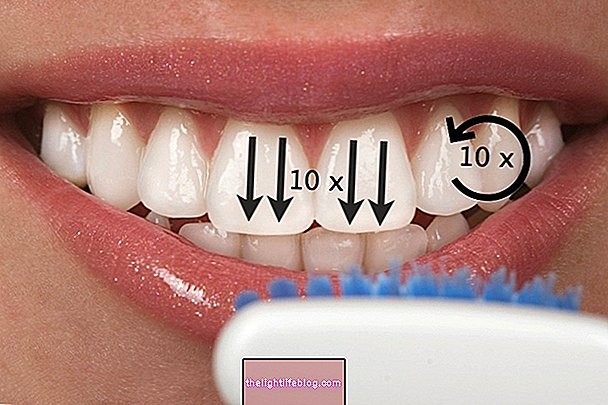
The home treatment to end bad breath consists of good oral hygiene, which can be done by following the following steps:
- Floss between the teeth;
- Brush the top and bottom teeth very well, rubbing each tooth to remove as much dirt as possible. If you find that you have plaque, you can add a little bit of baking soda to the toothpaste to brush your teeth more deeply, but only once a week so as not to remove the natural enamel from your teeth;
- Also brush the roof of your mouth, the inside of your cheeks and gums, but be careful not to hurt yourself;
- Use a tongue cleaner, wiping it across the tongue to remove the tongue coating which is a whitish layer that is caused by the accumulation of bacteria and leftover food. This can be purchased at pharmacies, drugstores and over the internet, being very economical and efficient.
- Finally, a mouthwash should always be used after brushing your teeth.
It is important to always use a good mouthwash whenever you brush your teeth, the most suitable ones are those that do not have alcohol, because alcohol dries out the mouth and promotes a smooth peeling of the mucus, and ends up favoring the proliferation of bacteria. These can be purchased at pharmacies, drugstores and supermarkets but a good homemade mouthwash is clove tea, as it has antiseptic properties that clean your mouth and purify your breath naturally.
If even following these tips, bad breath persists, it is recommended to go to the dentist because cavities, broken, damaged or badly positioned teeth favor the formation of tartar that leads to inflammation of the gums, which can also be one of the causes of halitosis.
2. Keep your mouth moist with lemon

When even with the correct oral hygiene it is not possible to end bad breath, this may indicate that it is being caused by other reasons, as it can happen when the mouth is always very dry. Keeping your mouth always moist is an excellent way to end halitosis, which is why it is recommended:
- Put a few drops of lemon directly on the tongue because the acidity of the lemon naturally increases salivation;
- Sleeping on your side to avoid sleeping with your mouth open;
- Eat every 3 or 4 hours so as not to go too long without eating anything;
- Take small sips of water several times a day. See strategies for drinking more water;
- Do not suck on candies or chewing gum but always have 1 clove in your mouth because it has antiseptic action and fights bacteria that cause bad breath;
- Eat 1 apple when eating out and it is not possible to brush your teeth next.
These and other ways to eliminate bad breath are in this fun video by nutritionist Tatiana Zanin:

3. Improve digestion by eating fruits
Always eating easily digestible foods such as fruits and vegetables is a good way to keep your breath pure, but in addition it is important not to eat fried, fatty or highly industrialized foods because they favor halitosis by the very smell of the food, or because they increase the production of gases in the body, which has a strong sulfur smell, in which case the person may have bad breath with the smell of feces.
A good strategy is to eat 1 fruit after each meal, apples and pears are excellent options because they clean your teeth and have little sugar.
Persistent bad breath can also be a sign of gastrointestinal illness and other types of illness, including cancer. Therefore, when halitosis does not have an obvious cause, make an appointment for a medical consultation to investigate why, when treating the disease, the bad breath will disappear.
Test your knowledge
Take our online test to assess your knowledge of oral health:
- 1
- 2
- 3
- 4
- 5
- 6
- 7
- 8
Oral health: do you know how to take care of your teeth?
Start the test
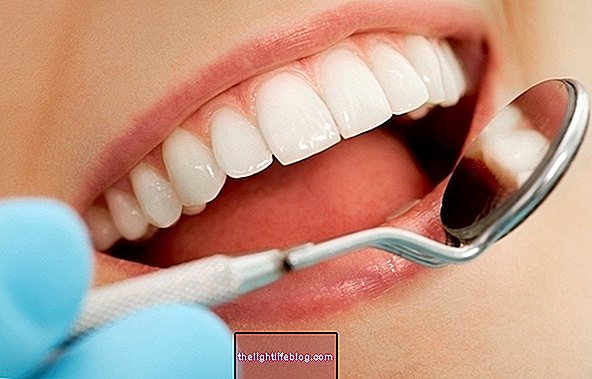
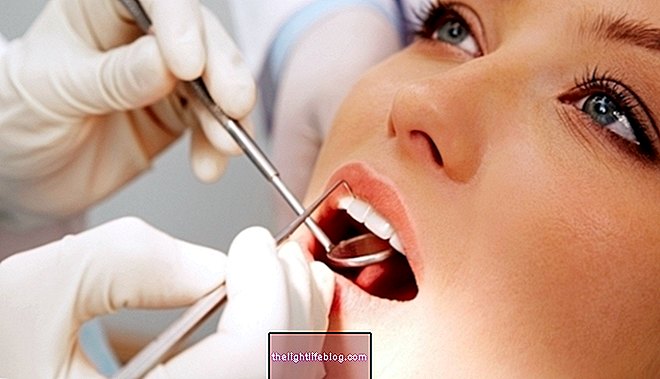
It is important to consult the dentist:
- Every 2 years.
- Every 6 months.
- Every 3 months.
- When you are in pain or some other symptom.
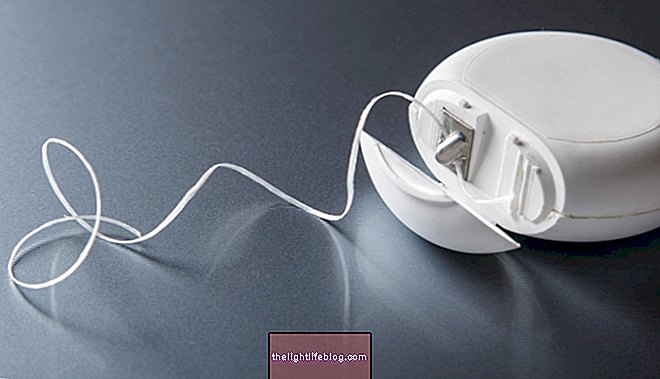
Floss should be used every day because:
- Prevents the appearance of cavities between teeth.
- Prevents the development of bad breath.
- Prevents inflammation of the gums.
- All of the above.

How long do I need to brush my teeth to ensure proper cleaning?
- 30 seconds.
- 5 minutes.
- Minimum of 2 minutes.
- Minimum of 1 minute.
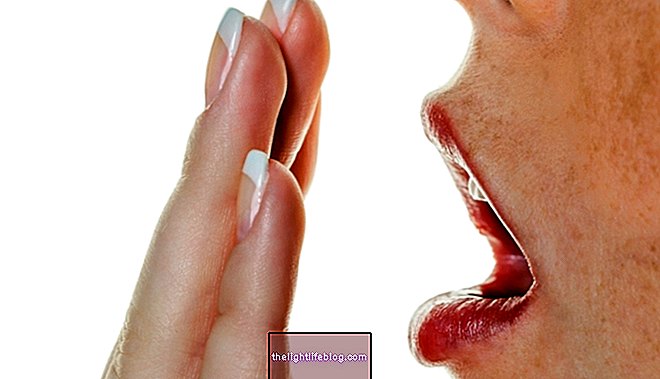
Bad breath can be caused by:
- Presence of cavities.
- Bleeding gums.
- Gastrointestinal problems like heartburn or reflux.
- All of the above.
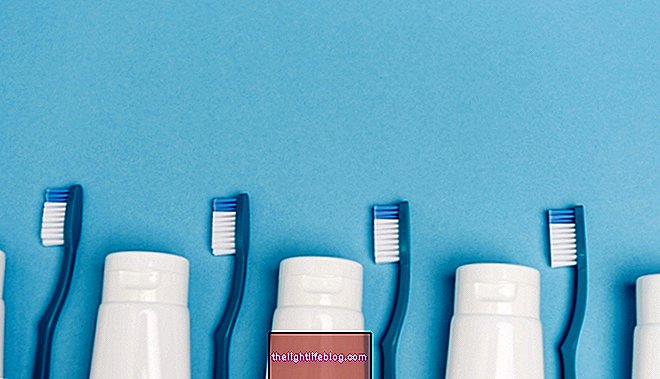
How often is it advisable to change the toothbrush?
- Once a year.
- Every 6 months.
- Every 3 months.
- Only when the bristles are damaged or dirty.
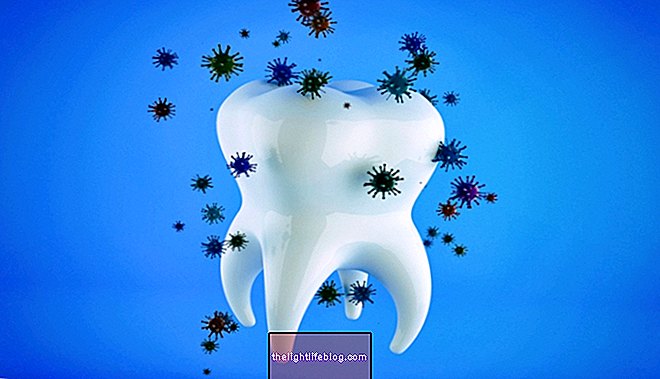
What can cause problems with teeth and gums?
- The accumulation of plaque.
- Have a high sugar diet.
- Have poor oral hygiene.
- All of the above.
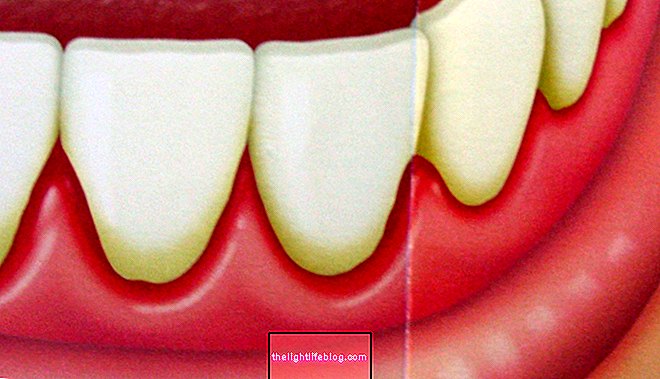
Inflammation of the gums is usually caused by:
- Excessive saliva production.
- Accumulation of plaque.
- Tartar build-up on teeth.
- Options B and C are correct.
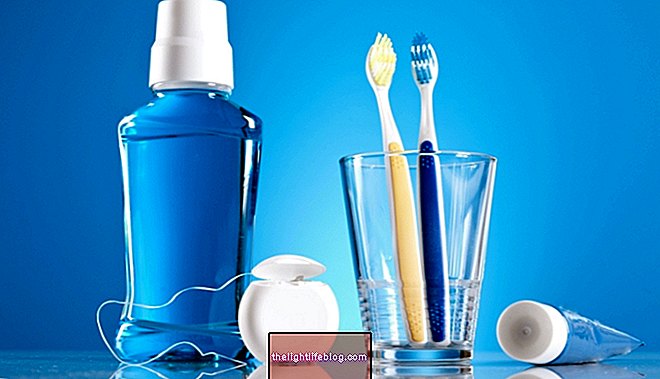
In addition to the teeth, another very important part that you should never forget to brush is:
- Tongue.
- Cheeks.
- Palate.
- Lip.
Was this information helpful?
Yes No
Your opinion is important! Write here how we can improve our text:
Any questions? Click here to be answered.
Email in which you want to receive a reply:
Check the confirmation email we sent you.
Your name:
Reason for visit:
--- Choose your reason --- DiseaseLive betterHelp another personGain knowledge
Are you a health professional?
NoMedicalPharmaceuticalsNurseNutritionistBiomedicalPhysiotherapistBeauticianOther


